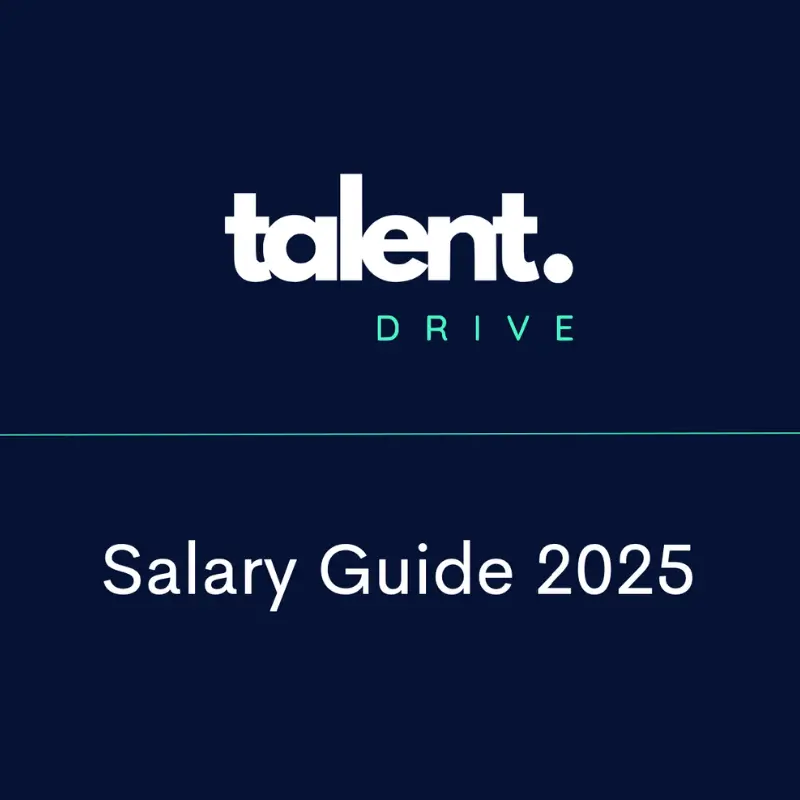Procurement is a dynamic and important function in any company, with a clearly laid-out career path and excellent earning prospects. With organisations now, more than ever, recognising the strategic value of good procurement and procurement professionals. To advance your procurement career and derive the best out of your salary and work, it is essential that you are aware of the various factors that influence compensation. In this article, we discuss key aspects of procurement career growth to assist with mapping your professional procurement journey.
Current Salary Trends in Procurement Jobs
The UK procurement sector is ever evolving, and with it are the salary trends. Our Talent Drive 2025 Salary Review Guide presents favourable trends in the overall market. Procurement roles have grown by 5% between 2023 and 2024. Moreover, the latest CIPS – The Chartered Institute of Procurement & Supply salary guide presents a 6.6% increase in the salaries of UK procurement professionals. Notably, procurement experts have seen their average salary rate raised by 2.5%, which compares favourably with the general average for the UK economy of 1.7%. Demand has also picked up in vacancies that highlight Digital/SaaS skills and specialist roles in supplier risk management and sustainable sourcing.
The Influence of Experience and Qualifications on Procurement Salaries
Experience is undoubtedly one of the most essential factors in procurement salaries. More experienced individuals, particularly those who have managed high-value or complex projects, tend to command higher pay. As you progress from a Buyer to a Senior Buyer, to a Procurement Manager and beyond, your responsibility increases and naturally, so does your pay.
In addition to on-the-job experience, professional certifications can be a key factor in increasing your salary. Qualifications such as those offered by the Chartered Institute of Procurement & Supply (CIPS) are highly regarded within the industry. The CIPS Salary Guide 2023 recognised that MCIPS qualified professionals had significantly higher earnings compared to non-MCIPS qualified professionals, with MCIPS qualified professionals gaining on average 48% more on their base salary. An advanced degree or specialised certification demonstrates dedication to professional growth and enhanced understanding, making you a more attractive applicant for higher-paying jobs. Employers seek out candidates who possess a mix of both field experience and formal qualifications.
Read our recent article “Essential Skills and Qualifications for Procurement Professionals” For more information on the highlighted skills, certification and qualifications required to progress in the industry.
Salary Negotiation Tips for Procurement Professionals
Salary negotiation can be intimidating, yet it’s an essential career development skill. The trick is to prepare. Start by researching extensively average salaries for your role, industry, and geography. Use online salary guides and benchmarking tools to determine the market rate.
When you’re ready to negotiate, highlight your value. Confidently articulate your achievements, the outstanding attributes you offer, and how your skills align with the company’s needs. Be specific about your desired number, perhaps slightly above your goal for negotiating space. Remember to consider the entire compensation package, not just the salary. This brings us to our next subject.
How to Benchmark Salaries for Procurement Positions
Salary benchmarking can be accurately done by both job seekers and employers. There are a number of credible sources that can help you. Guides such as our 2025 Salary Guide will provide you with information on average salaries and regional information. In addition, online benchmarking tools allow you to compare salaries for hundreds of jobs by selecting the sector and specialisation. These tools typically allow you to filter by experience level, industry, and geography, providing you with a tailored view of compensation requirements. Checking these resources periodically keeps your salary expectations both realistic and competitive.
Salary Expectations for Different Procurement Positions
The procurement career path has a wide range of positions, and each will have varying salary expectations. The more junior positions like Junior Buyer or Procurement Assistant will, naturally, have lower initial salaries. Typical starting salaries for a graduate can be around £25,000 – £30,000. As experience is gained and you move through the ranks of Buyer, Senior Buyer, Category Manager, Procurement Manager, and on to Head of Procurement or Procurement Director, your earning potential increases significantly. For instance, a Procurement Manager can expect to earn an average of around £45,000 to £80,000, with the scale of pay highly influenced by niche and category specific demands. At senior levels, average Procurement Director salaries can range from £120,000 to £140,000, depending on the size and complexity of the organisation. These rates are, of course, influenced by the factors discussed throughout this article.
Download our 2025 Salary Guide for a complete overview of salary expectations and facts.
Negotiating Non-Salary Benefits in Procurement
A base salary is essential, but a significant benefits package can truly maximise your overall remuneration and job satisfaction. Negotiate holistically. Beyond salary, attractive benefits generally include:
Flexible Working Hours: Allows easy juggling of professional and personal responsibilities.
Annual Leave: Generous holiday allowance and other paid time off illustrate employee appreciation.
Employee Development Opportunities: Training, mentoring programs, or conferences can greatly improve skills and career advancement.
Health & Dental Insurance: Private medical provision is a significant benefit for you and your family.
Pension Contributions: Look for employers who offer competitive contributions.
Performance bonuses or incentives: These can add a great deal to your annual salary.
Company car or car allowance: Not uncommon in travel-type jobs.
Don’t be afraid to negotiate these elements. Being willing to accept a lower basic salary in exchange for a high benefits package can often mean a more appealing overall package.
How Geography Affects Salary Levels in Procurement Jobs
Location plays an important part in UK procurement salary levels. Generally, jobs in London and the South East are higher paying due to the higher cost of living and higher concentration of large firms and competitive markets. The CIPS Salary Guide indicates that the highest average salary recorded for procurement and supply chain roles is in London at £69,161, while the lowest is in Northern Ireland at £37,796 CIPS Salary Guide – UK Supply Salaries. Major cities like Manchester, Birmingham, and Bristol also pay higher compared to less urban locations.
However, with the growing hybrid and remote working arrangements, the impact of fixed geographical locations has been reduced to a certain degree. While a London-based job might still attract a better nominal salary, the increased cost of living must be factored in. Professionals are increasingly prioritising flexibility, which can sometimes allow them to achieve good salaries while being located in areas that have lower costs of living. There are some areas that have seen high salary growth as well, such as Scotland, Wales, and Yorkshire and Humberside.
How Can We Help With Career Growth In Procurement?
Talent Drive is a specialist procurement recruitment agency based in Poole, we’re dedicated to placing qualified procurement professionals in roles that align with their career aspirations and salary requirements. We are well positioned to help and guide you on your procurement career growth journey. Take a look at our available jobs or upload your CV to our team.




